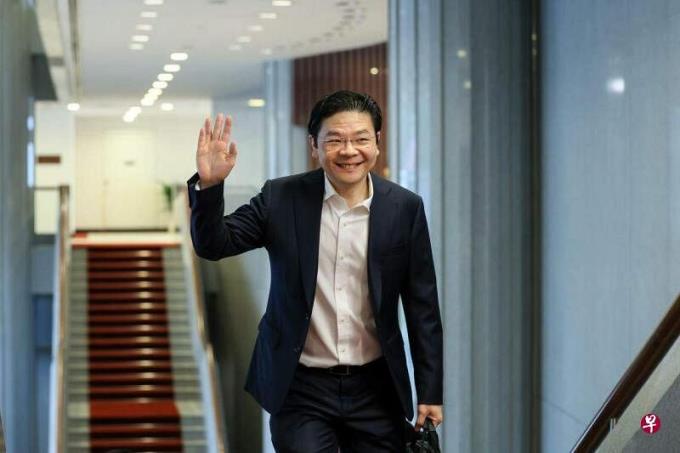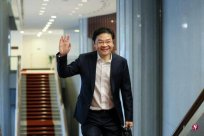
Deputy Prime Minister and Minister of Finance Huang Xuncai pointed out in Congress that building a new social contract requires major adjustments in the five major aspects: one is to change the attitude towards skills; the other is to reinterpret the definition of success; the third is the way to change social assistance;The fourth is to change the way of caring for the elderly; the fifth is to emphasize the responsibility of individuals and collectives.
This is the vision of the fourth -generation leader. The main theme is to mobilize the support and enhance the disadvantaged group to create a tolerance society.However, he emphasized that the government will not go to the western welfare system, nor will it increase the tax burden of the whole people. Instead, it will ensure that the economic resources are required for tolerance of society by accelerating the transformation.
Huang Xuncai admits that as the growth of the labor team slows down, Singapore's economic growth rate will gradually fall, but it is still necessary to ensure that growth is still necessary.If the economic cake does not expand, the less jobs will work, and the space for social assistance will be reduced.He said: "This current government must support, and will always support economic growth and build a tolerance society."
Create a huge economic resources to create a tolerant society.However, the global economy is moving towards decline, and inflation is high, increasing the risk of stagnation.After the first quarter of Singapore's economic adjustment, it shrinks by 0.1%month -on -month. If the downward trend continues in the second season, Singapore will fall into a technological economic recession.The investment income of Singapore Government Investment Corporation and Temasek Holdings is one of the main sources of revenue from government finances, but they are both vigilant that they have entered a low -yield investment environment worldwide.
On the other hand, social spending has increased rapidly, which has reduced the government's financial space.The Ministry of Finance pointed out that the government's annual expenditure currently accounts for about 18%of the GDP (GDP), and it is expected to increase to about 19%to 20%from the 2026 to 2030 fiscal year, and it may exceed 20%in the 2030 fiscal year.The rise in social expenses such as medical care, increasing low -paying employees and strengthening preschool education is the main factor for the increase in government spending.
In the case of fiscal space compression, creating a tolerance society must have a degree to avoid sliding to the slope of the welfare system unknowingly or falling into the vortex of populism.Otherwise, Yin eats food, and finally pays for this consequences, including the disadvantaged group.
The government does not implement the minimum wage system of one -size -fits -all. Instead, it adopts a gradual salary model in different industries to gradually increase the salary of low salary employees in stages.This reflects the government's cautious and gradual approach when creating a tolerance society.However, the gradual salary model aims to increase the income of low -paying employees and is not completely linked to productivity.When productivity increases lower than the rate of rising wages, the rise in wages is naturally reflected in the price of items and services.
Wage costs generally rise to increase the operating costs of the enterprise and also affect the competitiveness of the enterprise, especially small and medium -sized enterprises.In addition, the input -type inflation, green economic transformation, and increased legal tax have been pushed up to make living expenses, making the middle and lower class Chinese feel anxious.Although the overall inflation rate is still single -digit, the food price growth rate of hawker centers and coffee shops has been double -digit.The price of food and daily necessities has risen, and the impact on low -income class has the greatest impact.This will increase the resources and costs required by the government to support low -income class.
In the 1980s, Singapore's economic transformation was promoted, which greatly increased wages to eliminate labor -intensive industries.Due to the rapid rise in wages and the weak global demand, Singapore has fallen into the first economic recession since its independence in 1985.At that time, the government took decisive measures to reduce the employer's provident fund payment rate by 15 percentage points and implement the flexible wage system. Both the enterprise and the paid class made pain to adjust.
The disparity between the rich and the poor and the stagnation of social flow have strengthened the voices and demands of supporting vulnerable groups.To create a tolerance society to ensure social stability, it is at the commanding height of morality, but it must also avoid being overkill and falling into mistakes as fair cognitive blind spots.To alleviate the gap between the rich and the poor should start with the ability to improve the poor and the poor.When creating a tolerance society, it is necessary to return to the origin and ensure sufficient economic resource support.Otherwise, populism hijacked the agenda of tolerance, which will inevitably exacerbate social differentiation and drag economic growth.


